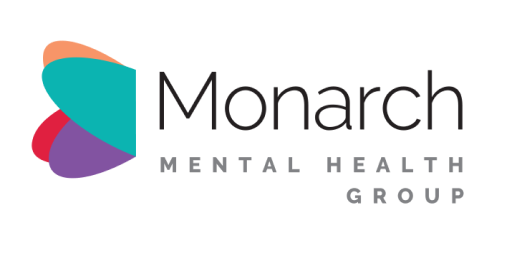If you don’t wish to read any further, this article can be summarised in one concise sentence.
There is substantial and overwhelming evidence that TMS is an effective treatment for patients with depression.
If you wish to read on and understand this further, please do. To start with, it’s probably worth saying a few words about what we mean by evidence. The effectiveness of a device-based treatment like TMS is evaluated in a similar manner to which a new drug treatment may be tested but there are some differences. Drug treatment typically progresses through a series of ‘phases’ but the language associated with these phases doesn’t apply as well to device-based treatments. Instead, we often talk about pilot or proof of concept studies leading to pivotal trials. Pivotal trials are really the equivalent of the phase 3 drug trial, the larger studies conducted in multiple clinical settings that are usually the evidence required for regulatory approval of the treatment. The results of clinical trials are then summarised in meta-analyses and often further summarised in network meta-analyses and umbrella reviews. Finally, post-approval real-world data is collected and importantly contributes to our understanding of the outcomes and safety of a treatment once it has been used in widespread clinical practice.
Pilot studies exploring the use of TMS in patients with depression first began appearing in the mid-1990s and soon created considerable enthusiasm for the potential use of TMS therapy. The first pivotal trial, conducted by the TMS manufacturer Neuronetics Ltd, was published in the late 2000s testing the use of TMS in hospitals and research settings in North America and Australia including one that I lead in Melbourne [1]. The successful conduct of this trial led to FDA approval of TMS in the US market and a gradual rollout of clinical programs around the world. A second multisite trial, funded by the National Institutes of Health in the US rather than a device manufacturer, was published several years later and confirmed the positive benefits of TMS therapy. A third multisite trial, this time of so-called ‘deep TMS’ (TMS applied with a modified coil to penetrate somewhat deeper in the brain) also showed positive benefits of TMS treatment. In parallel to these studies, a large body of investigator-initiated trials were conducted around the world, the vast majority showing positive benefits.
The results of these many clinical trials have been synthesised in an analytical process called meta-analysis which takes the results of many trials and brings them together into one comparison. There have now been many meta-analyses, usually with somewhere between 30 and 60 clinical trials included in each, which have confirmed the benefits of TMS therapy. Meta-analyses have shown that TMS is better than sham or placebo treatment for patients who have failed one, two or more antidepressant medications. They have shown that TMS is effective in patients who are taking medication and also those who are medication-free. They have also shown that the effects of TMS, the benefits over placebo stimulation, persist for at least three months after the end of the course of therapy.
Network meta-analyses, a specific type of meta-analysis that compares treatments to one another, have shown that there are actually several forms of TMS that are effective. This provides multiple options for clinicians to choose from in establishing therapeutic protocols.
Perhaps more importantly, an important network meta-analysis conducted several years ago compared the use of TMS to a range of other strategies for treating patients who had unsuccessfully been treated with initial antidepressant medication therapy (at least two medications) [2]. This study showed, that after four or six weeks of treatment, TMS was as good as, if not better than, all of the other evaluated treatment options in its ability to induce a clinical response or help patients to have a full remission of their clinical symptoms.
For example, the authors found that “At six weeks after baseline, rTMS showed the highest remission rates and ranked first amongst all competing pharmacological interventions”.
As suggested above, post-approval studies can be used to evaluate how effective treatment is once it has transitioned into real-world clinical practice [3]. A study several years ago which evaluated the outcomes of over 5,000 patients who received TMS in clinical practice showed that there were substantial and meaningful clinical benefits in between 50 and 80% of patients who received treatment, with the percentage depending on how this was evaluated. This certainly is important evidence suggesting that benefits seen in clinical trials can be achieved in more widespread clinical services.
Finally, studies have looked across many clinical trials to understand how well-tolerated TMS therapy is. In one very large study, the results of 95 clinical trials were compared [4]. This showed that the likelihood that a patient would stop treatment because of a side effect was actually no higher in patients having real TMS compared to a placebo, very strong evidence that it is generally a very well-tolerated treatment.
If you have read to the end, I hope you will be convinced of the veracity of my opening statement. Decades of research, conducted in many varying contexts all around the world, have provided a consistent and overwhelming body of evidence that TMS is an effective treatment. So much so that regulatory boards worldwide have found the evidence sufficient for approval of its use, and Medicare in Australia provides funding for TMS for eligible individuals. TMS should be discussed in all patients who have unsuccessfully tried several antidepressant medications when experiencing an episode of depression.
*To read more about the strong evidence for efficacy and safety, click on the article link below
[1] https://doi.org/10.1016/j.biopsych.2007.01.018
[2] https://doi.org/10.1080/03007995.2016.1277201
[3] https://doi.org/10.1016/j.jad.2020.08.005
[4] https://doi.org/10.1111/ner.12946

